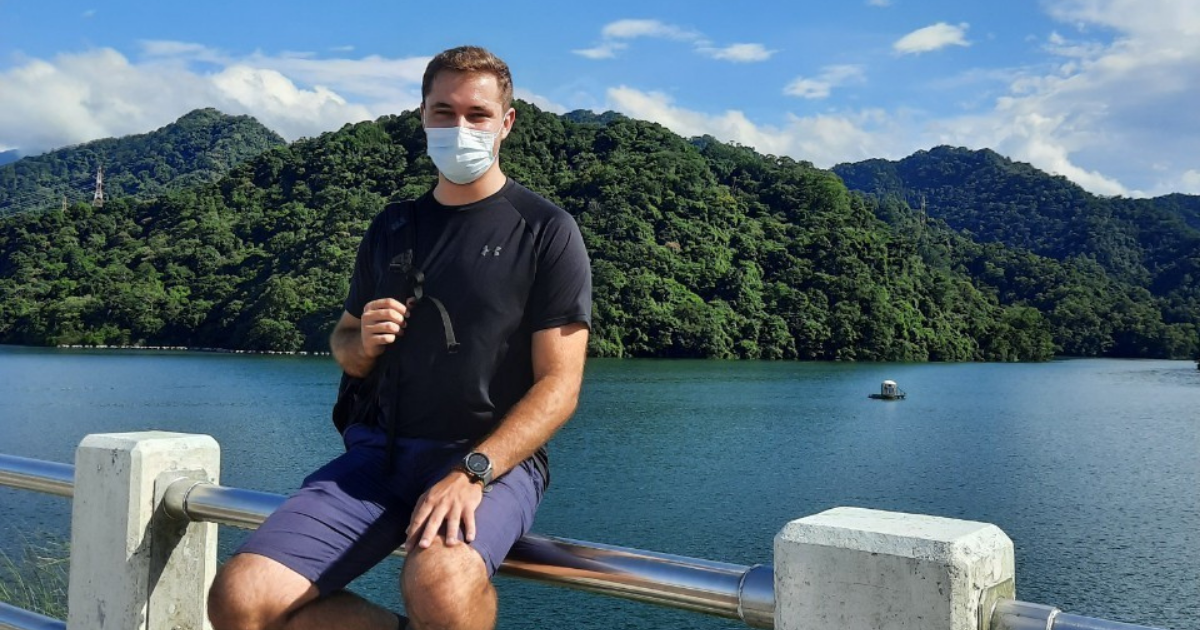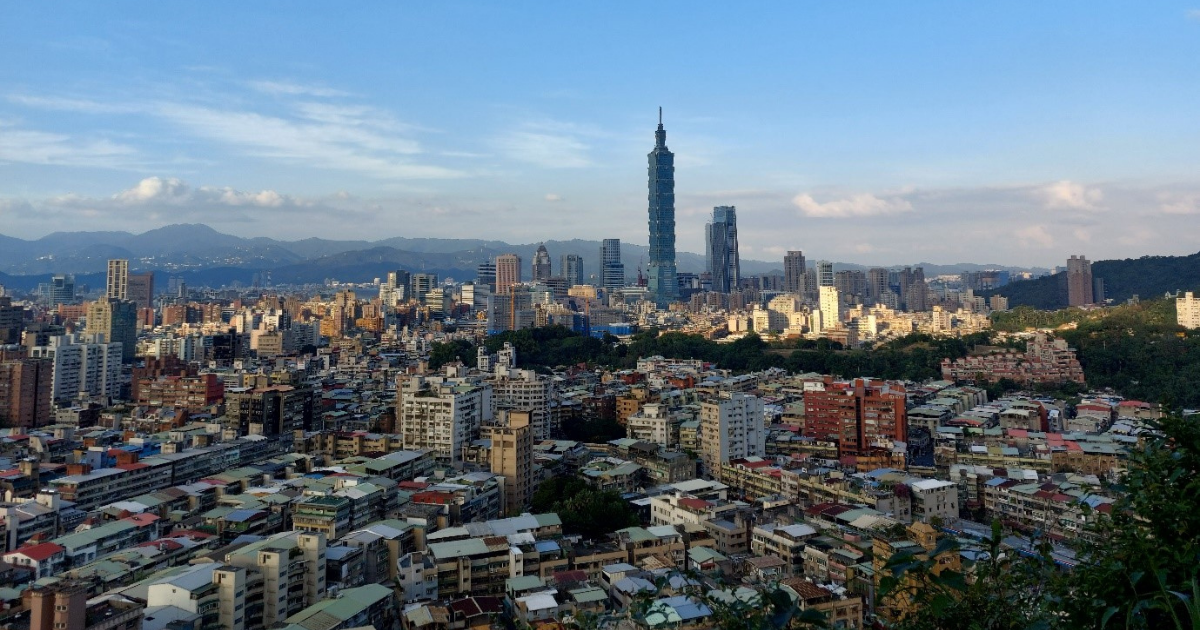Studying abroad during the pandemic: The devil is in the detail (of culture)
The ongoing pandemic is constantly forcing us to think flexibly and to change one or the other travel plan. Despite all hurdles and challenges, it is still worth it to study abroad, thinks Niklas Kleemann. The IM student takes us on a virtual trip to his exchange uni in Taiwan and explains what going abroad has taught him on international management.

大家好我是李克納 (Hello everyone, I am Li Kena - my Chinese Name)
A German proverb goes “I only understand train station/Chinese”, when we cannot grasp what is being said. But how do you express that if you are actually trying to learn Chinese? Studying my bachelor’s in International Management at the OVGU in Magdeburg, I figured that it would be a good addition to my studies to have a semester abroad under my belt. I chose Taiwan as I have visited here previously and was interested in the culture and language, latter I have been studying for a while.
Thailand? No. China? No. Taiwan!
Previously, when I mentioned Taiwan to other people there was one frequent reaction, “Oh yeah, I have heard of *Thailand*!”. Taiwan has been mentioned several times in the news recently, hence I now meet fewer people unaware of this country. Many people have either heard about the conflict between China and Taiwan or about Taiwan’s handling of the pandemic. Those who study in any business major should also know about Taiwan’s strategic asset, the semiconductor industry. Almost everything in our modern lives is dependent on this industry, and Taiwan is decades ahead of other countries in the development of chips. Your smartphone contains several chips, and modern cars often have a couple of thousand chips each. Try to imagine that when you buy your first car there might be more than 3000 little pieces made in Taiwan inside of it.

Be prepared for not being able to prepare!
Going to Taiwan for a semester abroad had been one of the farthest goals in my life so far, yet it was one which I could barely plan on due to the pandemic. Taiwan had managed to keep the pandemic mostly out of their borders and had almost no COVID-19 cases. Their success strategy was to quarantine all incoming travelers upon arrival. So how did the pandemic affect my planning then? I was worried, about not being able to go. Finally, at the beginning of August, I received my long-awaited acceptance letter. I had to plan quickly as I was told to take a flight one week later. That’s if I wanted to attend the first class after going through two weeks of quarantine and one week of self-health management. During this stressful time, I was glad having the support of Miss Seela from the international office, Mister Wu from our partner university, and Clea, a fellow student who would join me for the adventure in Taiwan.
Studying in other countries during a pandemic
Finally! We have in-person classes again! Yet not everything is back to normal; we still must wear a mask and there are a few hybrid options as some students could not come to Taiwan until recently. That’s where our newly acquired skills from the pandemic came in handy. We organized our group work in a hybrid form to present in class and through Teams at the same time. Aside from that, the pandemic did not impact our social life a lot. In Taiwan, we are free to go everywhere as long as we keep our masks on and scan the QR codes, which can be found at the entrance to every building.

Cultural differences everywhere!
How important is it to understand the culture while doing business in other countries? In courses on International Management, we have been taught different theories on cultural dimensions, we have learned about Hall, Hofstede, and Trompenaars/Hampden-Turner. Now you might be able to identify some aspects of national culture, explained by these researchers, in the two observations which I would like to share with you.
The most obvious observation was that students here must participate in lectures and hand in assignments, in some courses every week. At our university in Germany, we enjoy some more freedom. In Germany, it does not matter what you do throughout the semester if you can prove in the end, by passing the exam, that you understood the material. As with everything in life, there are positive and negative implications from that. The positive for me is that we are graded for our participation in class, as I usually excel in conversation. The negative is that I am forced to attend class every week. That’s where I miss the flexibility from my last year, being able to study while traveling in other countries.
Another interesting observation, and very relevant to managing international teams, might be that many of my fellow Taiwanese students wish for clear instructions when working on assignments or other projects. If a task is unclear, students here keep asking for further guidance. This must be considered when assigning work as you can be sure to get exactly what you ask for, but you also might not get more than that. Few students dare to bring their own style into a project or try to improvise.
Before dwelling on other differences which I have observed here I would like to wrap it up with an old Chinese saying “有志者事竟成: Where there is a will there is a way” and encourage everyone trying to study or work in another country to not wait for the perfect time, but to make it work now!
As the Taiwanese would say: 加油!
If I have sparked your curiosity, click here for a short video about my travels in Taiwan.
Thank you, Niklas, for sharing your experience with us!
What is your experience on studying abroad? If you would like to tell your fellow students about it, please send an e-mail to international.management@ovgu.de





